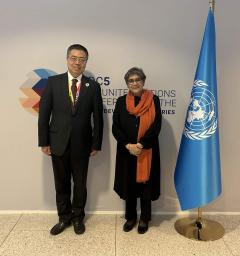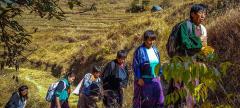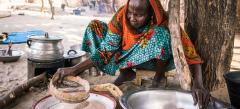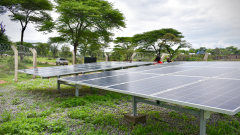- عربي
- 中文
- English
- Français
- Русский
- Español
Facing Multiple Crises, Africa’s Most Vulnerable Nations Call on International Community for Greater Support
49834249446_d4a4c2d380_k.jpg
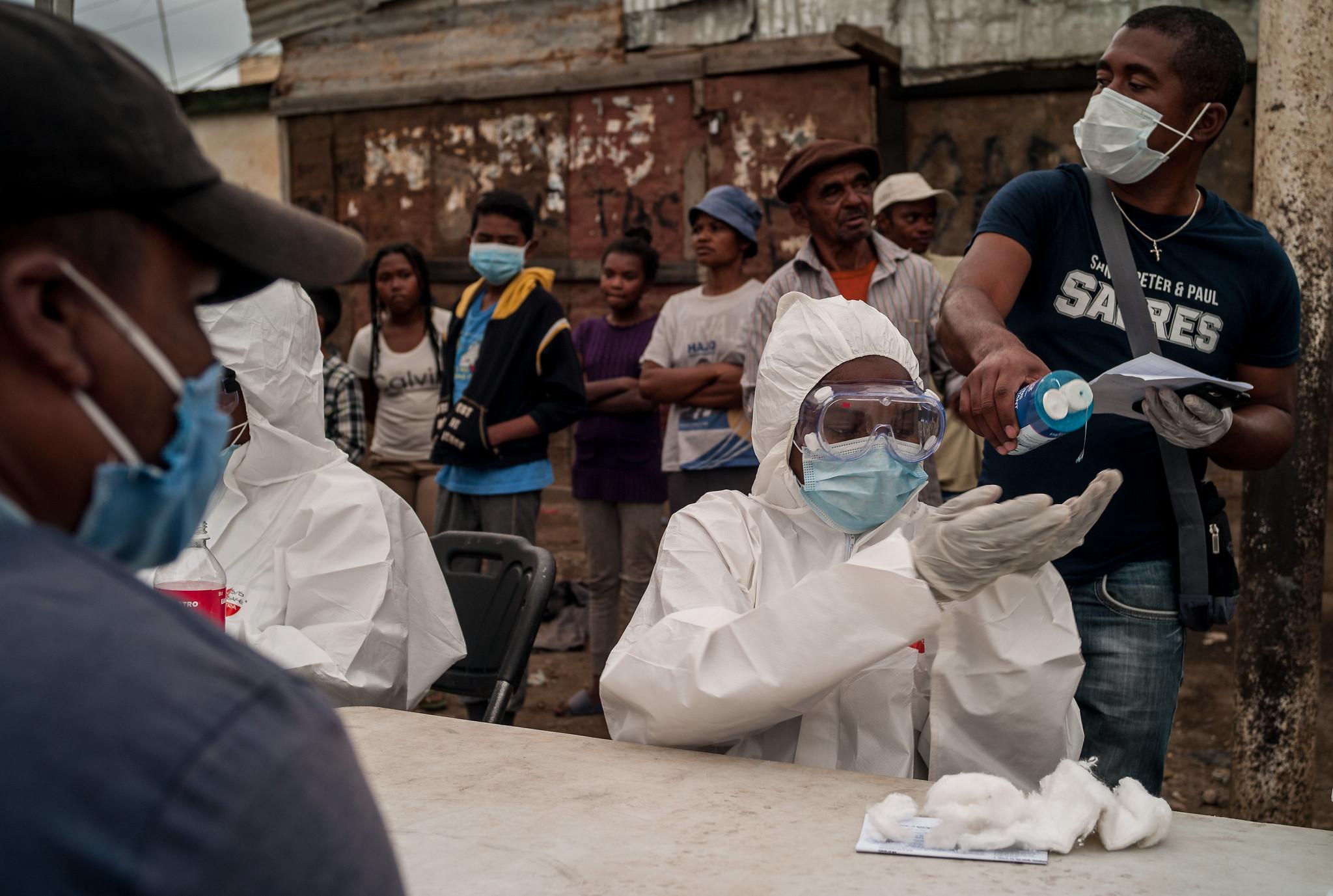
26 February 2021
The COVID-19 pandemic, climate change, trade barriers and debt distress are some of the major challenges debated at a high-level meeting of ministers from the Least Developed Countries (LDCs) of Africa and Haiti this week.
Over the past five days, leaders of African nations and Haiti, development partners, civil society, private sector and representatives of the United Nations deliberated over progress by Africa’s least developed countries (LDCs) in achieving sustainable development, and what new policies and support measures are required to build a resilient future.
“The LDC members’ GDP shrank by 1.3 per cent in 2020, thereby increasing the number of poor households and worsening inequality between and within countries, with disproportionate effects on women,” said Malawian President Lazarus Chakwera, opening the meeting. "The Pandemic has exposed our limitations in the fields of science, technology and innovations, which has laid bare the digital and technological divide between nations.”
Across the LDCs, the pandemic is projected to force an additional 32 million people into poverty. For Africa’s LDCs, the pandemic has jeopardized hard-won development gains. In the three years prior to the pandemic, African LDCs achieved steady real average GDP growth of 3.9 per cent – slightly above the global average of 3.4 per cent. However, as a result of the pandemic, projections indicate real GDP growth of African LDCs to contract by 1.5 per cent in 2020.
Besides impacts on economies, previous gains made in gender equality, poverty reduction and reducing inequalities are at risk, putting additional pressure on already vulnerable nations to achieve the Sustainable Development Goals by 2030.
A declaration agreed at the conclusion of the week, recognised that “a successful, renewed and strengthened global partnership that effectively addresses the special needs of African LDCs will contribute to the cause of peace, prosperity and sustainable development for all.” Furthermore, the declaration affirmed the commitment by African LDCs to strengthen healthcare systems, bolster research and development, empower women and provide a rapidly growing youth population with greater prospects for a decent life. They also called for the immediate establishment of a global stimulus package to address the impacts of COVID-19 and on development partners to support them in achieving global development goals.
“My take-away from the past five days is there is a tremendous sense of hope expressed by leaders from Africa and Haiti, and the inspiring youth representatives, of the sheer determination to forge ahead towards a more resilient and prosperous future,” said the UN High Representative for the Least Developed Countries, Landlocked Developing Countries and Small Island Developing Sates Fekitamoeloa Katoa ‘Utoikamanu.
The conclusion of the Africa Regional Review meeting, hosted by the Government of Malawi, kicks off a series of meetings and events leading to the the landmark Fifth UN Conference on the Least Developed Countries (LDC5) taking place in Doha, Qatar in early 2022.
The conference will set the development agenda for the LDCs for the coming decade and occur as they redouble their efforts to achieve the Global Sustainable Development Goals by 2030.
“We are very confident this conference will enormously contribute to meeting the needs of these countries and supporting their journey towards achieving their development goals over the next ten years,” said Soltan bin Saad Al-Muraikhi, Minister of State for Foreign Affairs of Qatar and host of the LDC5 Conference.
The coming months will see a similar regional review meeting for LDCs in the Asia and Pacific region and the commencement of inter-governmental negotiations on the next programme of action for the LDCs which is expected to be adopted in Doha next year.



